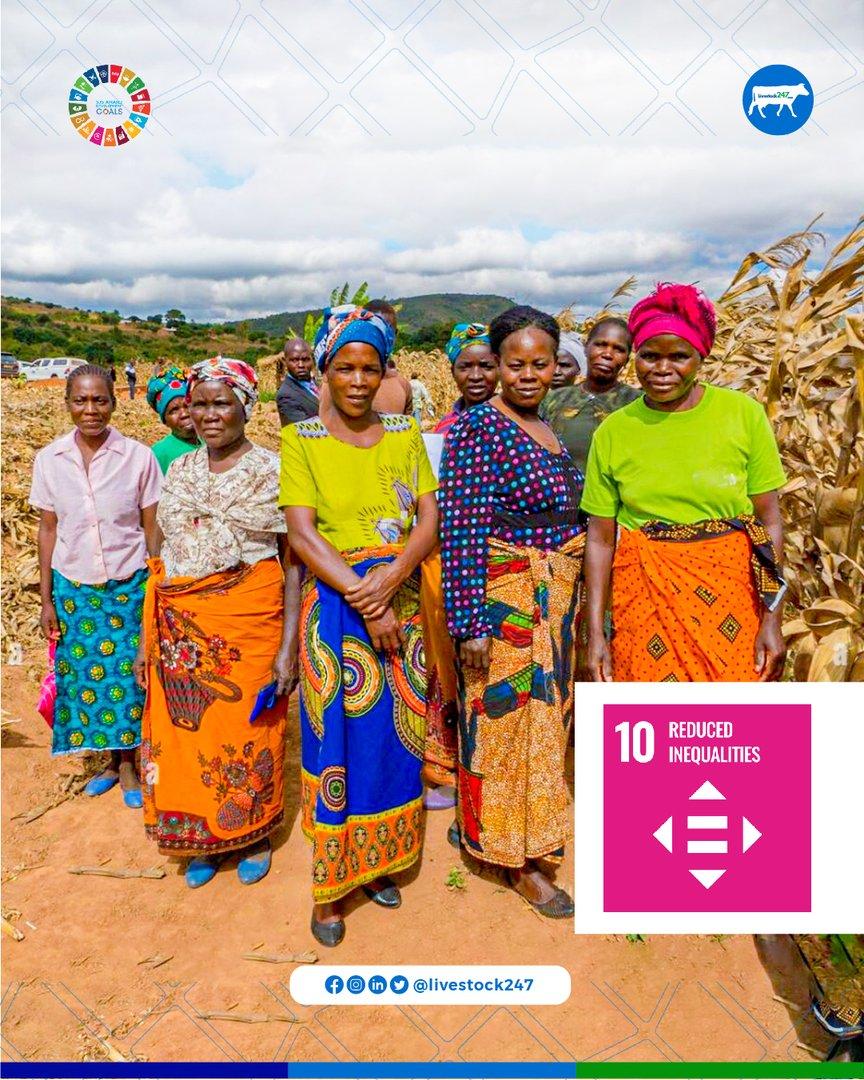Livestock247 - How Livestock Sector Contribute to Reduced Inequality Within and Among Countries
The livestock sector can contribute to reducing inequality within and among countries in several ways, although the impact may vary depending on the specific context and the strategies employed.

Here are some of the ways in which the livestock sector can contribute to reduced inequality:
📌 Income Generation: Livestock farming provides income opportunities to a wide range of people, from small-scale farmers in rural areas to commercial operations in urban and peri-urban settings. This diversity of participation can help spread economic benefits across different income groups and regions.
📌 Job Creation: The livestock sector generates employment opportunities, including jobs in animal husbandry, transportation, processing, and marketing. By providing employment, it can reduce unemployment and underemployment, contributing to a more equitable distribution of income.
📌 Food Security: Livestock production can improve food security by providing a source of animal-sourced protein, which is especially important in areas where dietary diversity is limited. Access to animal products can help combat malnutrition and improve the health of vulnerable populations.
📌 Livestock Ownership: Livestock ownership can be a form of wealth and a safety net for many smallholders, we at Livestock247 help them mitigate the risks associated with zoonosis, livetock management and income fluctuations. This can reduce economic inequality by providing a valuable asset to those who may not have other forms of wealth.
📌 Trade and Exports: The livestock sector can contribute to national and regional economies by participating in international trade. This can boost a country's foreign exchange earnings and stimulate economic growth. It can also create opportunities for small-scale producers to access larger markets, reducing income inequality.
📌 Technology Transfer and Knowledge Sharing: Livestock farming often requires a mix of traditional and modern practices. The transfer of improved technologies and knowledge sharing can benefit smallholders, empowering them to improve their productivity and income.
📌 Access to Markets: Efficient value chains and market access are critical for reducing inequality. Improving the link between livestock producers and consumers can help ensure fair prices for farmers and affordable products for consumers.
📌 Gender Inclusivity: Women play a significant role in livestock farming, especially in small-scale and subsistence farming. Efforts to empower women in the livestock sector can contribute to reducing gender-based inequality.
📌 Environmental and Sustainable Practices: Sustainable livestock production practices can help reduce environmental degradation, benefitting both rich and poor communities. These practices ensure that resources are used efficiently, minimizing negative impacts on the environment and livelihoods.
Deborah Dairo
Deborah Dairo is the content strategist for Livestock247
No comments yet. Login to start a new discussion Start a new discussion